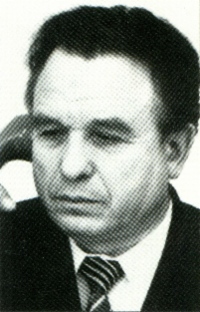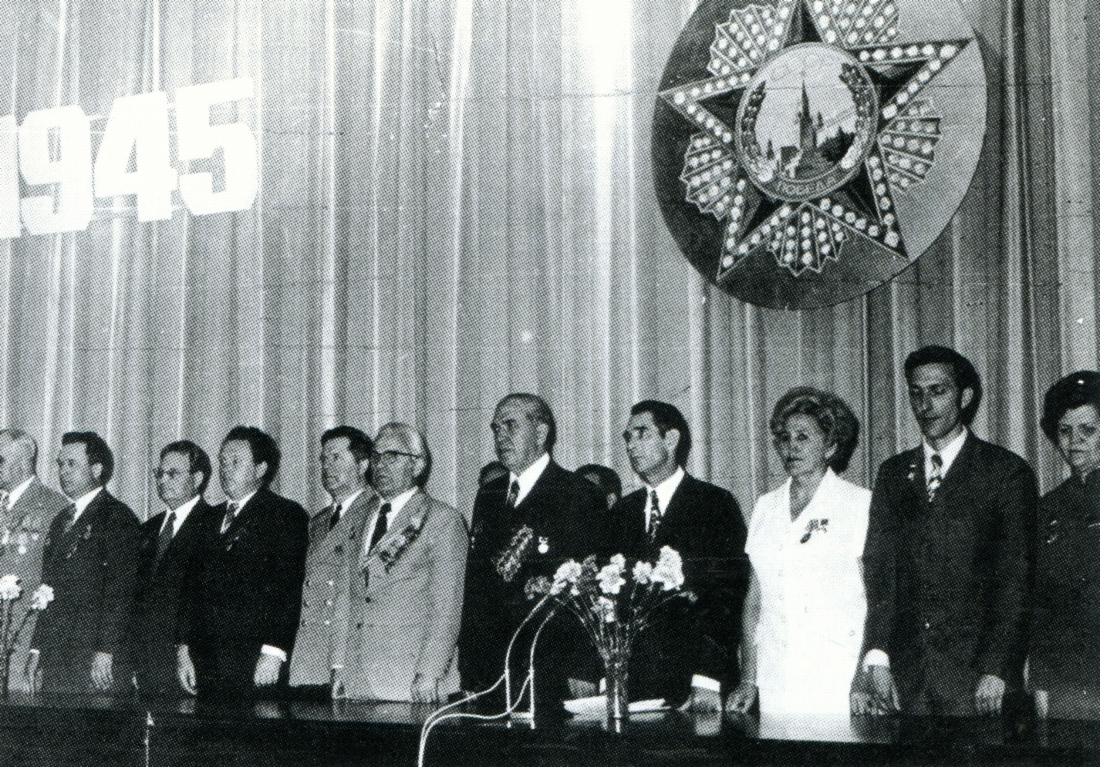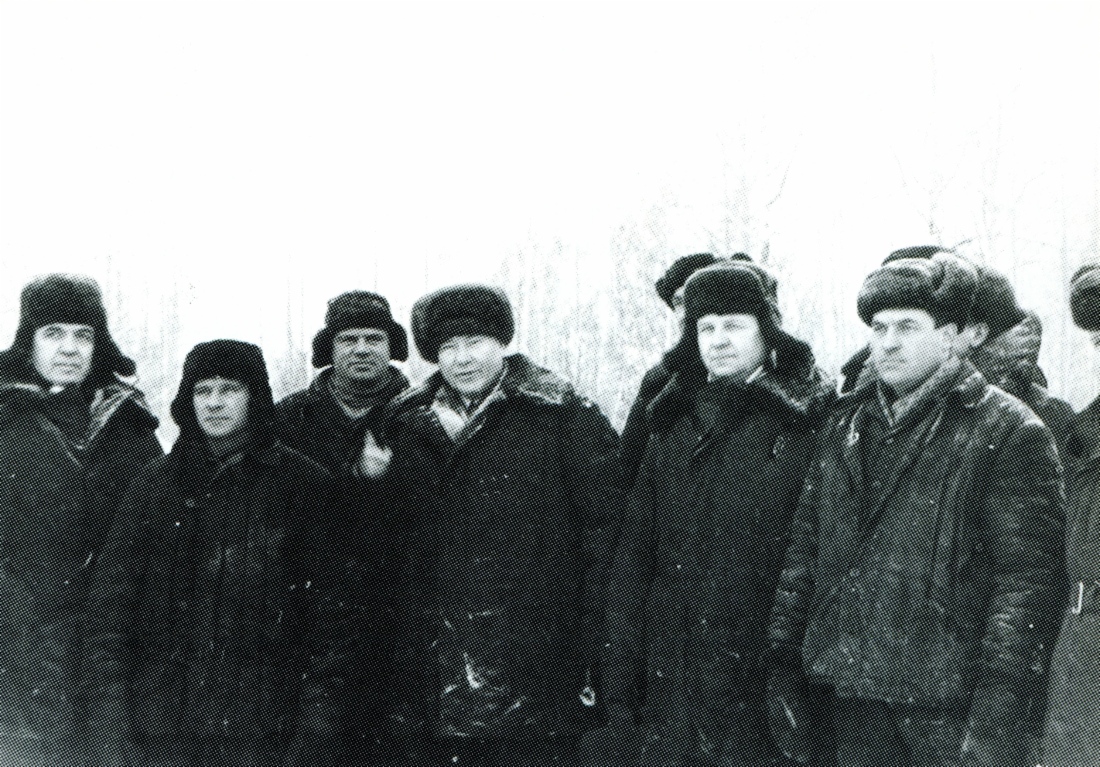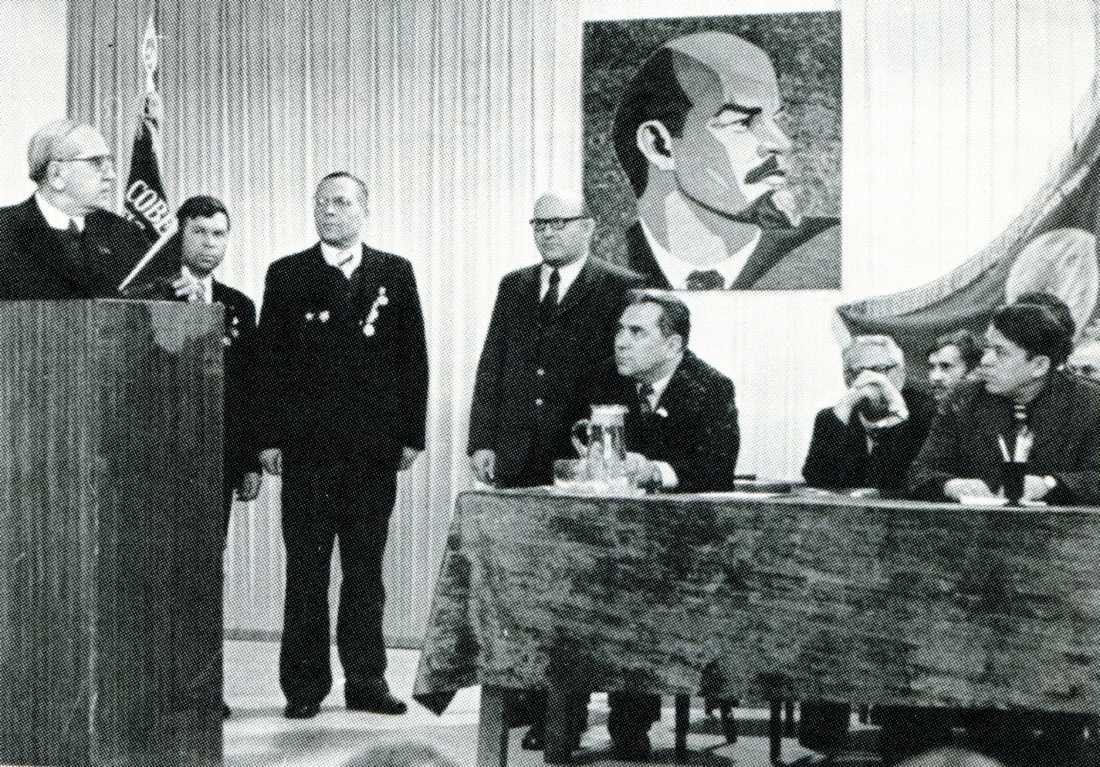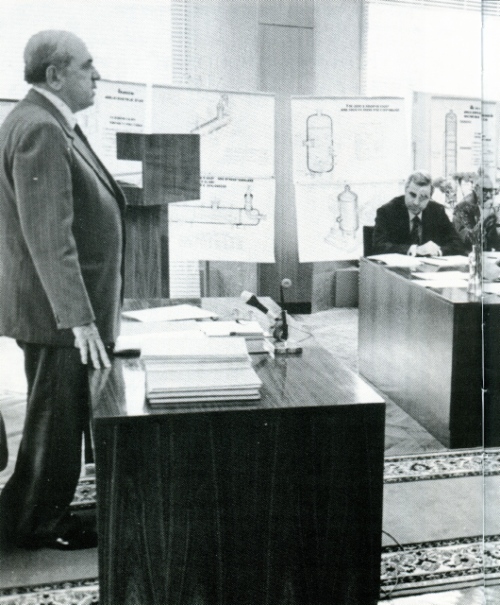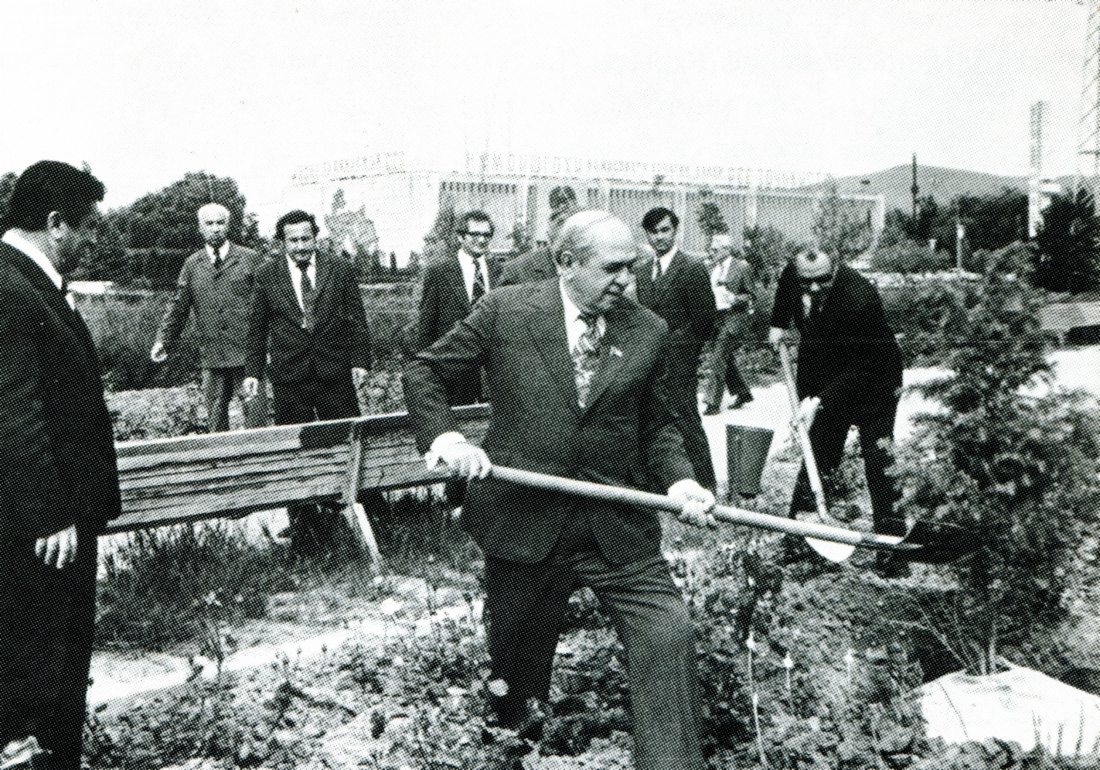Sergey Kashirov
From 1972 – Secretary of the Communist Party Committee at the USSR Gas Industry Ministry; from 1973 – Head of the Soyuzintergazprom All-Union Association; from 1975 – Head of the Central Dispatch Administration; from 1977 – Deputy Minister of the USSR Gas Industry.
“Even amid the most major of tasks, he still kept people in mind…”
Forgetting old scores
Sabit Orudzhev gave his subordinates a lot of leeway in their work and never nitpicked, but he was strict when it came to results. At the same time, he never refused to give advice when asked.
In 1973, a decision was made to build the Soyuz gas pipeline by the forces and at the expense of seven socialist countries of Europe which the USSR would later recompense with gas supplies. It was something never done before. Thousands of foreigners worked in our country under that project, and, what is more, they were not working behind closed doors and could not be isolated from the local population. The most serious concerns were due to the Germans working in the Cherkasy Oblast of Ukraine, as the events of the Great Patriotic War were still a vivid memory there. Sabit Orudzhev knew the situation at the gas pipeline very well and understood the tasks set ahead of us.
Different views on one issue
But there was one issue where our points of view turned out to be radically different. Design engineers planned to use gas compressor units (CGUs) with a capacity of 25,000 kW, which were not manufactured in the USSR. That is why in the course of the works the Gas Industry Ministry and Mr. Orudzhev himself decided to use CGUs with a capacity of 10,000 kW, which led to the need for a larger number of GCUs, utilities required, etc. Besides, those GCUs had a low efficiency. I started to express strong dissent against the new decision, although I knew that they had already convinced Mr. Orudzhev of its practicality. At one meeting, Mr. Orudzhev even declined to shake hands with me when we met. It was decided to use the low-capacity GCUs. I approached Mr. Orudzhev and said: “No one managed to change my mind regarding the soundness of the initial decision. Sometime later, we will go back to it.” He said nothing in response. But after a while, they began replacing 10,000 kW GCUs with 25,000 kW ones.
Worldly advice
In 1976, Mr. Orudzhev suggested that I raise the profile of Gazprom’s Dispatch Service by becoming the Head of the Central Dispatch Administration (CDA). Probably wishing to demonstrate the importance of the CDA and maybe to compensate for the disagreements he and I had had in the past, Mr. Orudzhev promised to make me a member of the Gazprom Collegium right away. However, I underestimated his gesture and answered that I was willing to work in the new position even without membership in the Collegium.
Sabit Orudzhev was upset with my answer, but he did not show it and did not go back on his word. I became the Head of the CDA and a member of the Collegium. Only much later, during one of our private talks, Mr. Orudzhev noted that my obstinacy could seriously impede my career. At that moment I understood that it was a piece of advice not so much from a senior as from a person who sincerely cared about me.
Less than two years later, Mr. Orudzhev offered me to become his deputy, but he added right away: “Just don’t refuse my offer.” By that time, I already knew him, his nature and his style of work quite well, so I agreed. In that position, I worked with Sabit Orudzhev until the end of his life.
What is more important?
Even amid the most major of tasks, Sabit Orudzhev still kept people in mind. In 1980, a severe accident occurred during the testing of the Gryazovets – Cherepovets pipeline. I took a flight to the site of the accident. When I got there and started reporting to Mr. Orudzhev on the elimination measures, he listened carefully and then asked: “Mr. Kashirov, do you have any warm clothes? Can we get you anything?” His words touched me. We were discussing a gas pipeline that provided the country with up to 2 million cubic meters of gas daily, so a day of idle time could significantly affect the economy of a whole region, and yet he was still asking me about warm clothes.
Sticking up for his people
Working with Mr. Orudzhev, one could be sure that there was always a powerful man standing behind. Sabit Orudzhev stood up for his subordinates, as he believed that he also defended the honor of the Ministry by doing so. However, the mistakes made through their fault were not concealed but discussed in detail at Gazprom’s meetings. And at those meetings, the person at fault knew that no punches would be pulled, although Mr. Orudzhev never denied the ministry’s faults either.
Flexible judgment
He was able to assess a situation objectively and revise his decision if he saw that his judgment was biased. That quality was especially apparent when it came to fateful matters.
Playing on home turf
Mr. Orudzhev used a special trick with his superiors whenever he wanted them to settle some matter in favor of his ministry. He invited them to a meeting of the Collegium at the Gas Industry Ministry.
That way, he made them play on his “home turf,” as the officials of the highest ranks found themselves surrounded with gas industry specialists and had to answer concrete questions. Owing to this, many problem issues of the industry were addressed in a prompt manner.
On equal footing with others
The work schedule was always very tight. Working days began early and ended late in the evening, and our bedtime was around 2 a.m. There were no special working and living conditions created for the minister.
It was cold and rainy, and the meals were very plain. But what mattered most was the work. Sabit Orudzhev devoted himself to his work and demanded the same from others.
Global thinking
Looking at Sabit Orudzhev, I became convinced that a minister does not have to be an expert in all spheres of the industry. He must have a good general knowledge of the industry, be an intelligent person, a good facilitator, have reliable assistants, and be able to make decisions on the basis of advice received. Some minor mistakes made by Sabit Orudzhev were overlooked, because from the strategic point of view he was leading the industry the right way, and that was the most important thing.

